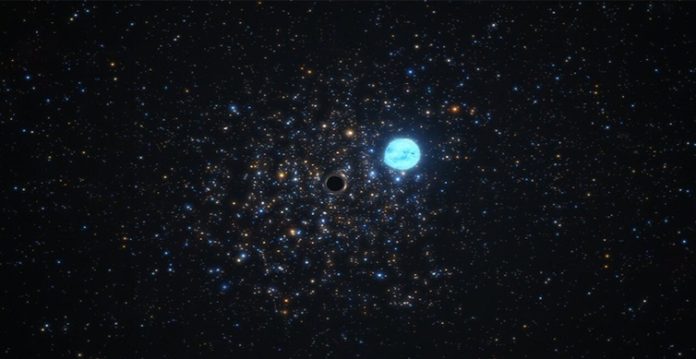Astronomers have discovered a small black hole out of the Milky Way with the aid of looking at the way it influences the motion of a star in its close region.
The team at Liverpool John Moores University inside the UK used the European Southern Observatory’s Very Large Telescope (ESO’s VLT), located inside the Atacama Desert of northern Chile, to identify the black hole.
The newly located black hole modified into noticed lurking in NGC 1850, a cluster of lots of stars roughly a hundred and sixty,000 light-years away within the Large Magellanic Cloud — a neighbour galaxy of the Milky Way. The detection in NGC 1850 marks the primary time a black hollow has been located in a younger cluster of stars (the cluster is only round 100 million years antique, a blink of a watch on astronomical scales).
ALSO READ: Astronomers Suspect New Planet Over Strange Radio Waves
According to Sara Saracino from the Liverpool John Moores University’s Astrophysics Research Institute, the black hole is greater or less eleven times as large as our Sun. Astronomers started out on the path of this black hole because of its gravitational impact at the 5-solar-mass movie star orbiting it.
Previously such small, “stellar-mass” black holes have been noticed in other galaxies thru selecting up the X-ray glow emitted as they swallow depend, or from the gravitational waves generated as black holes collide with every other or with neutron stars.
However, most stellar-mass black holes do not deliver away their presence via X-rays or gravitational waves.
This is the primary time this detection approach has been used to show the presence of a black hole out of doors of our galaxy. The technique might be key to unveiling hidden black holes inside the Milky Way and close by galaxies, and to assist shed light on how those mysterious gadgets shape and evolve, the institution said.
“Every single detection we make can be essential for our destiny know-how of stellar clusters and the black holes in them,” stated co-author Mark Gieles from the University of Barcelona, Spain.


